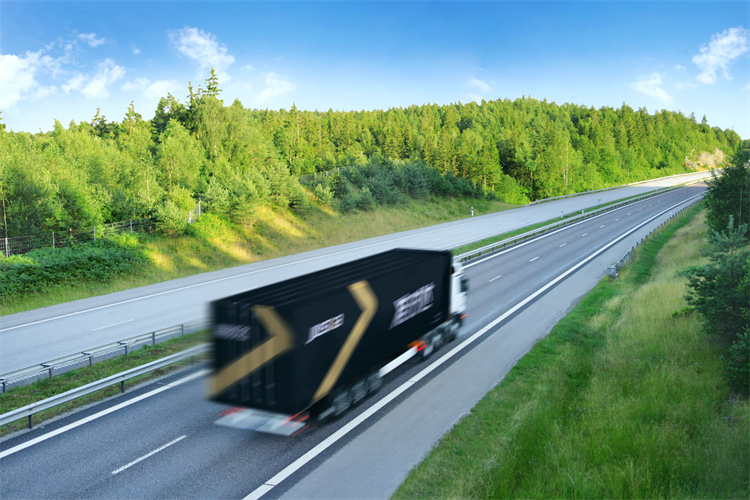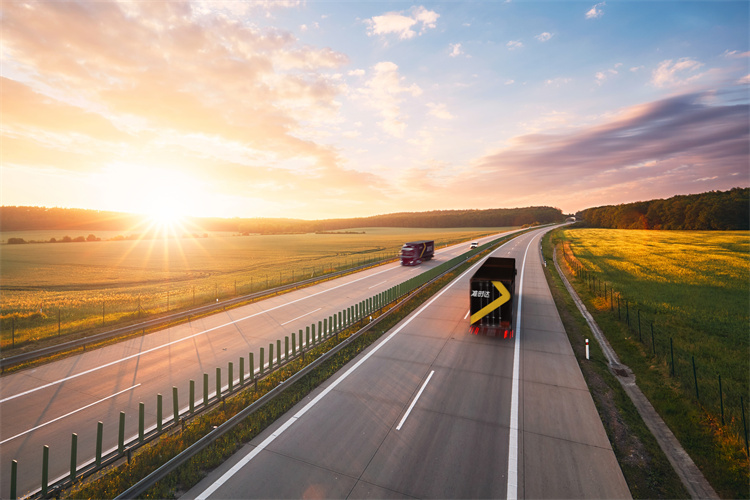Emerging Trends in Land Transport for 2025

Land transport has experienced substantial changes in recent years, with a growing emphasis on more sustainable and efficient transportation modes. Historically, federal transportation infrastructure law and spending have predominantly favored highway-centric investments, with only 20 percent of total funding allocated to public transit, thereby limiting resources for climate-friendly options. As we look towards the land transport future 2025, understanding emerging trends becomes essential. The future of land transport in 2025 is expected to highlight technological advancements and sustainability. This evolution will not only revolutionize commuting but also influence urban planning and economic development.
Technological Advancements in Land Transport Future 2025

Autonomous Vehicles
Current state and developments
Autonomous vehicles have made significant strides in recent years. Companies like Tesla and Waymo have pioneered self-driving technology, focusing on safety and efficiency. The development of Autonomous vehicles trucks, particularly for freight mobility, has gained momentum. These trucks promise to reduce operating costs and address driver shortages. In Germany, MAN and partners have achieved milestones in self-driving trucks for hub-to-hub automation.
Predictions for 2025
By 2025, autonomous vehicles are expected to become more prevalent. Experts predict increased integration into public transport and logistics. This shift will enhance safety and efficiency, transforming urban mobility. Autonomous driving technology will likely play a crucial role in addressing transportation challenges.
Electric and Hybrid Vehicles
Growth in adoption
Electric and hybrid vehicles continue to gain popularity. Governments worldwide promote these vehicles through incentives and regulations. The rise of electric vehicles (EVs) is expected to accelerate, contributing significantly to the transformation of land transport by 2025.
Innovations in battery technology
Battery technology innovations drive the growth of electric vehicles. Researchers focus on increasing energy density and reducing charging times. These advancements will make electric vehicles more accessible and practical for everyday use.
Smart Infrastructure
Integration with IoT
Smart infrastructure plays a vital role in the future of land transport. The integration of IoT enables real-time data collection and analysis. This connectivity enhances traffic management and improves safety. Cities are investing in smart traffic lights and connected roadways to support this transformation.
Impact on traffic management
Smart infrastructure impacts traffic management by optimizing flow and reducing congestion. Real-time data allows for dynamic traffic control, improving overall efficiency. This technology will be essential in managing the complexities of urban transport systems.
Environmental Considerations

Sustainable Practices
Shift towards renewable energy
The land transport future 2025 emphasizes a significant shift towards renewable energy. Many companies now invest in solar and wind power to fuel transportation systems. This transition reduces reliance on fossil fuels and promotes cleaner energy sources. By 2025, experts anticipate that renewable energy will power a substantial portion of land transport, enhancing sustainability.
Reduction in carbon footprint
Reducing the carbon footprint remains a priority for the land transport future 2025. Innovations in vehicle design and fuel efficiency contribute to this goal. Manufacturers focus on lightweight materials and aerodynamic designs to minimize emissions. These efforts align with global initiatives to combat climate change and promote environmental health.
Government Regulations
Policies promoting green transport
Governments worldwide implement policies to promote green transport. These regulations encourage the adoption of eco-friendly vehicles and infrastructure. For instance, many countries enforce stricter emission standards and support public transit projects. Such measures aim to redirect transportation funding towards low-carbon projects, ensuring a sustainable future.
"Critical to redirecting the flow of transportation dollars toward equitable low-carbon transportation projects," states a recent congressional letter.
Incentives for eco-friendly vehicles
Incentives play a crucial role in the land transport future 2025. Governments offer tax breaks and subsidies to encourage the purchase of electric and hybrid vehicles. These incentives make eco-friendly options more accessible to consumers. By fostering a supportive environment, authorities aim to accelerate the transition to sustainable transportation methods.
"Incentivizing adoption of sustainable transportation methods," highlights a government initiative document, emphasizing the importance of these measures.
Economic and Social Impacts
Cost Implications
Changes in transportation costs
In the land transport future 2025, transportation costs will undergo significant changes. New technologies focus on reducing expenses by enhancing efficiency and enabling real-time decision-making. Autonomous vehicles and electric transport systems promise lower operational costs compared to traditional methods. These advancements will likely lead to more affordable transportation options for consumers.
The adoption of innovative technologies in land transport future 2025 will bring substantial economic benefits. Companies investing in autonomous and electric vehicles will see reduced fuel and maintenance costs. Additionally, smart infrastructure will optimize traffic flow, saving time and resources. These improvements will contribute to economic growth by increasing productivity and reducing waste.
The adoption of innovative technologies in land transport future 2025 will bring substantial economic benefits. Companies investing in autonomous and electric vehicles will see reduced fuel and maintenance costs. Additionally, smart infrastructure will optimize traffic flow, saving time and resources. These improvements will contribute to economic growth by increasing productivity and reducing waste.
Social Changes
Impact on urban planning
Urban planning will transform in the land transport future 2025. Cities will need to adapt to new transportation modes, such as autonomous vehicles and smart infrastructure. Planners will focus on creating sustainable and efficient urban environments. This shift will lead to more pedestrian-friendly spaces and improved public transit systems, enhancing the quality of life for residents.
Changes in commuting patterns
Commuting patterns will evolve significantly by 2025. The rise of autonomous vehicles and electric transport will offer more flexible and eco-friendly commuting options. People will likely choose shared mobility solutions, reducing the reliance on personal vehicles. This change will decrease traffic congestion and promote a healthier urban lifestyle.
JUSDA's Role in Land Transport Future 2025
Innovative Solutions
JusLink Intelligent Supply Chain
JUSDA stands at the forefront of innovation in the land transport future 2025. The JusLink Intelligent Supply Chain exemplifies this commitment. By integrating advanced technologies such as IoT, big data, and cloud computing, JUSDA enhances supply chain visibility and efficiency. This platform facilitates real-time collaboration and information sharing, crucial for adapting to the dynamic demands of modern logistics. The JusLink system empowers businesses to optimize their operations, ensuring they remain competitive in a rapidly evolving market.
Cloud Warehousing and Distribution
In the land transport future 2025, JUSDA's cloud warehousing solutions play a pivotal role. These advanced systems leverage cloud technology to provide real-time inventory management and seamless distribution services. By utilizing cloud warehousing, businesses can reduce costs and improve operational efficiency. JUSDA's commitment to innovation ensures that clients benefit from cutting-edge logistics solutions, enabling them to meet the challenges of the future with confidence.
Industry-Specific Services
Automotive and New Energy
JUSDA tailors its services to meet the unique needs of various industries, including automotive and new energy sectors. In the land transport future 2025, these industries face significant transformations driven by technological advancements and sustainability goals. JUSDA provides specialized supply chain solutions that support the integration of electric and autonomous vehicles. By focusing on industry-specific requirements, JUSDA helps clients navigate the complexities of the evolving transportation landscape.
Electronic Manufacturing and FMCG
The electronic manufacturing and fast-moving consumer goods (FMCG) sectors also benefit from JUSDA's expertise. As the land transport future 2025 unfolds, these industries demand efficient and reliable logistics solutions. JUSDA's comprehensive services ensure that products reach their destinations swiftly and securely. By leveraging its extensive network and innovative technologies, JUSDA supports the growth and success of its clients in these competitive markets.
The land transport future 2025 presents several key trends and predictions. Autonomous vehicles, electric and hybrid innovations, and smart infrastructure will redefine transportation. These advancements promise enhanced efficiency and sustainability. Industry stakeholders must adapt to these changes. Embracing technologies like AI and IoT will ensure resilience and responsiveness. Opportunities for innovation abound. Companies can leverage digital adoption to build resilience and enhance sustainability. Those who stay informed and flexible will navigate challenges effectively. The land transport future 2025 offers a dynamic landscape ripe for growth and transformation.
See Also
Ready to Explore: The Latest in Transport Technology for Supply Chains
Prepare for the Transport Technology Revolution Ahead
Enhancing Supply Chain Efficiency: 5 Key Trends
Mastering Sustainable Transportation for Supply Chains
Redefining Efficiency: Innovative Indigenous Transport Solutions
